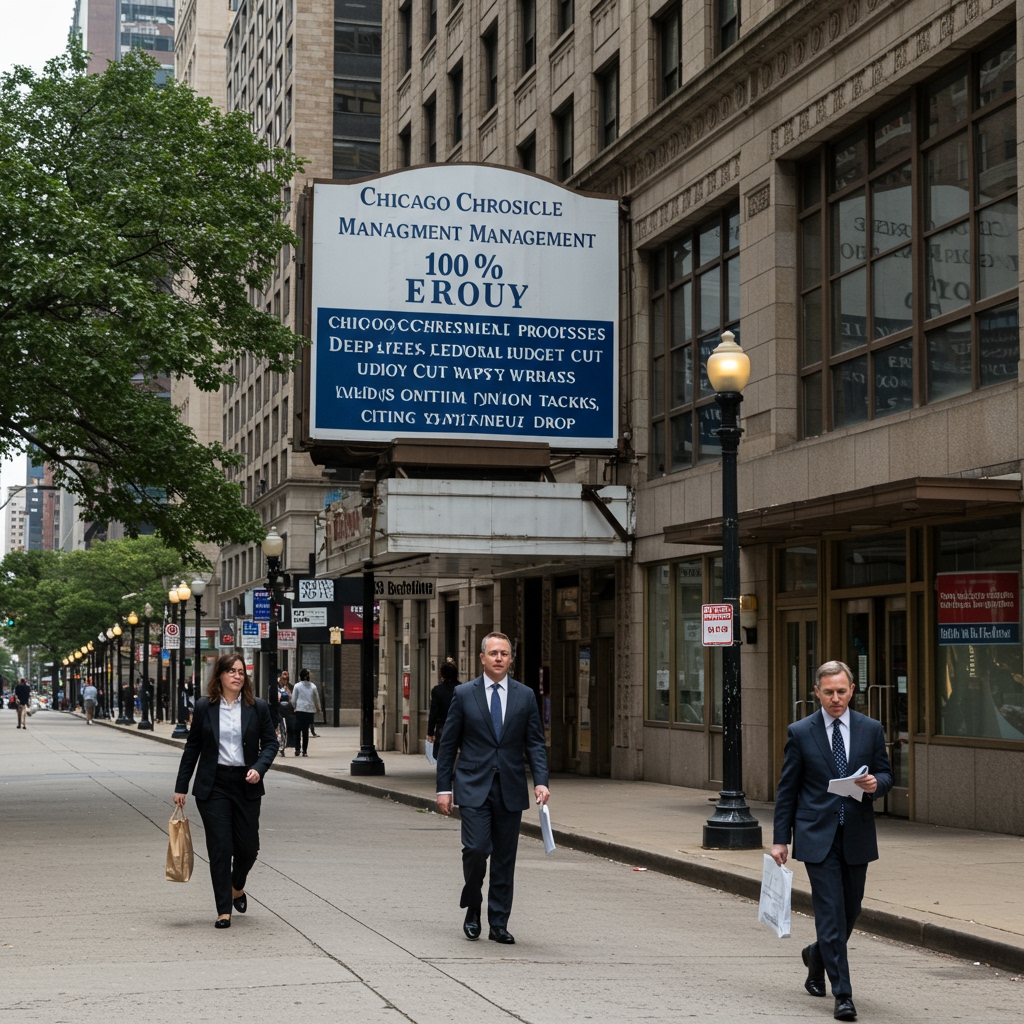The Chicago Board of Education has approved a $10.2 billion budget for the upcoming fiscal year, marking a significant decision to close a $734 million gap without resorting to costly borrowing or fulfilling a contentious pension payment to the City of Chicago. The budget, championed by interim CEO Macquline King, passed with a 12-7 vote, with one abstention, on August 28th, just ahead of the state’s legal deadline. This move has been widely praised by fiscal watchdogs for its pragmatism and responsibility, though it underscores the district’s persistent long-term financial challenges.
Navigating a Tight Financial Ship
Chicago Public Schools (CPS) faced a substantial budget deficit of $734 million for the 2025-2026 fiscal year. In the lead-up to the vote, considerable debate and political maneuvering surrounded how this deficit would be addressed. Mayor Brandon Johnson and some of his allies on the school board had advocated for the district to take on a short-term, high-interest loan and to make a $175 million pension payment to the city’s municipal fund, which covers non-teaching CPS staff among other city employees.
However, King’s proposed budget, which she presented earlier in August, eschewed these measures. This approach was met with support from various quarters, including a letter from a majority of Chicago aldermen who warned against what they deemed “willfully reckless financial decisions” that could harm students and employees. The district’s Chief Financial Officer had previously cautioned that a loan could trigger a “downward spiral” of credit downgrades and increased borrowing costs. The Civic Federation, a non-partisan research organization, lauded the budget for avoiding “risky revenue assumptions and short-term borrowing that would both undermine the district’s tenuous financial standing and increase future deficits.”
Key Decisions and Their Implications
A central point of contention was the $175 million pension payment to the city. State law generally obligates the city to cover this cost, and CPS leaders argued that making this payment would divert essential funds from educational programs. King’s budget only included this payment conditionally, contingent on unexpected new revenue from sources like surplus Tax Increment Financing (TIF) funds or additional state aid. This strategy, while prudent in avoiding immediate financial strain, relies on the uncertain TIF surplus, a point of concern for some board members who questioned the likelihood of the City Council approving such a large transfer.
The budget also involved cost-cutting measures, primarily targeting central office staff and other support positions, totaling approximately $272 million in cuts across various departments. While these cuts aimed to protect classroom spending, some unions, such as SEIU Local 73 representing support staff, celebrated the passage of the budget as a relief from potential layoffs for their members. The Chicago Teachers Union, however, criticized the budget, expressing concern that it would still negatively impact students through cuts to essential services.
Lingering Financial Headwinds
Despite the approval of a balanced budget for the current fiscal year, the underlying financial issues for Chicago Public Schools remain significant. The district continues to grapple with a structural deficit, projected to grow in the coming years, even with the current budget’s measures. Projections indicate deficits could increase from $520 million in 2027 to over $835 million by 2030.
Furthermore, the district’s infrastructure is reportedly oversized relative to its declining enrollment, a long-standing issue that contributes to inefficiencies. CPS also faces substantial unfunded pension liabilities, estimated at $13.9 billion, and its debt load is nearly $10 billion, with debt per student rising significantly over the past decade.
A critical recommendation from the Civic Federation and others is the need to disentangle CPS’s finances from those of City Hall. This complex relationship has historically involved various subsidies and financial agreements unique to Chicago, creating challenges in transparency and accountability. The news surrounding this budget decision highlights the ongoing effort by CPS leadership to navigate these complex financial waters, balancing immediate needs with the imperative for long-term fiscal health. The approval of this budget is a step forward, but the district’s journey toward sustainable financial stability is far from over.
News Analysis: A Responsible Step Amidst Persistent Challenges
The Chicago Board of Education’s recent budget approval represents a moment of fiscal responsibility, prioritizing the avoidance of damaging debt and the diversion of funds away from students. Interim CEO Macquline King’s leadership in steering this course, particularly in the face of pressure from City Hall, underscores a commitment to safeguarding the district’s financial future. However, this editorial’s focus on the successful budget passage should not overshadow the formidable long-term challenges that CPS continues to face. The news that the district still contends with structural deficits, aging facilities, and complex entanglements with the city signifies that this budget is a necessary but insufficient solution. The path forward requires sustained efforts to achieve fiscal independence and operational efficiency for Chicago’s public schools.















